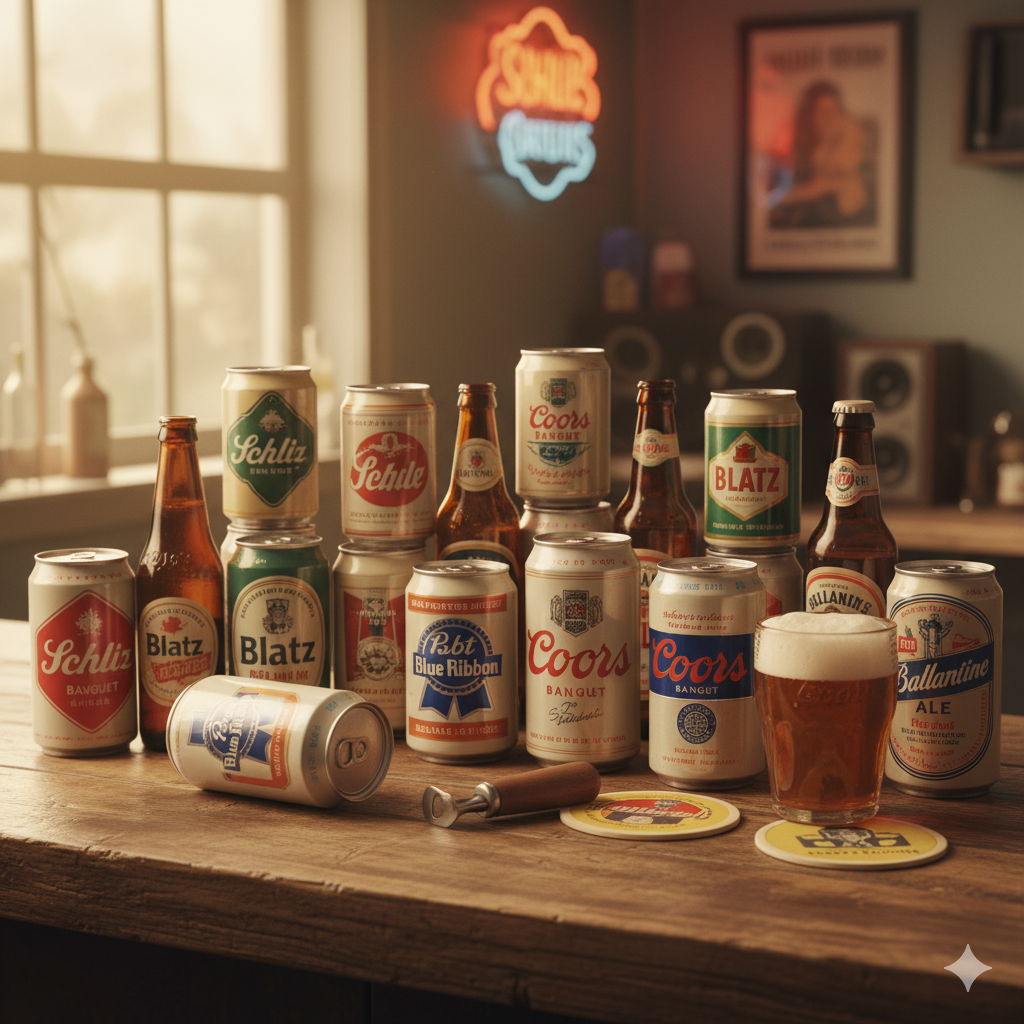The Savvy Retiree Digest
Archives
10 Nostalgic Beers Almost Extinct & The Stories Behind Them
SIGN UP FOR OUR NEWSLETTER
10 Nostalgic Beers Almost Extinct: A Toast to America's Lost Brews |
Before the craft beer explosion, these iconic brands filled every cooler. Now, they're fading into memory, leaving behind stories of what once was. |
The landscape of American beer is barely recognizable from just a few decades ago.
While craft breweries now dominate the scene, a ghostly lineup of once-mighty brands lingers in our collective memory.
This is a look back at 10 nostalgic beers almost extinct, many of them victims of changing tastes, corporate mergers, and disastrous business decisions.
No fall from grace was more dramatic than that of Schlitz.
Once hailed as "The Beer That Made Milwaukee Famous," its reputation was shattered by a fateful recipe change in the 1970s.
The move was a catastrophic miscalculation that turned loyal customers away almost overnight.
Other beloved brands were defined by their deep, unshakeable local roots.
Olympia Beer famously built its entire identity around the pure artesian water of its Washington home.
Similarly, Falls City Beer was a point of pride for Louisville, born from a rebellion against big beer monopolies.
When these breweries were sold or production moved, the magic simply vanished.
Brands like the pioneering Ballantine IPA and the West Coast's Lucky Lager have also faded, leaving behind only collector's cans and fond stories.
While some see small, limited revivals, these classic American beers exist mostly as a faint echo of a bygone era.
What happened to famous old beers like Schlitz?
Many iconic beers declined due to corporate mergers, recipe changes that alienated fans, and intense competition from both major brewers and the rising craft beer movement.
Why are some nostalgic beers making a comeback?
Nostalgia is a powerful market force. Small, independent brewers sometimes revive classic beer brands in limited runs to appeal to customers looking for a taste of the past and a connection to local brewing history. |

